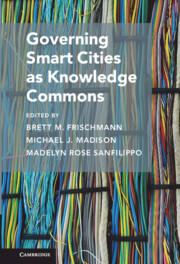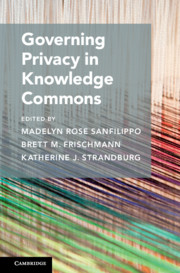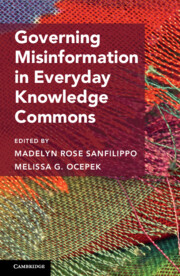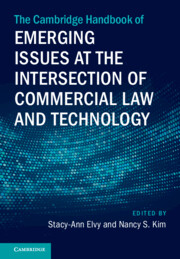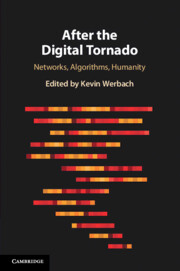Governing Smart Cities as Knowledge Commons
The rise of 'smart' – or technologically advanced – cities has been well documented, while governance of such technology has remained unresolved. Integrating surveillance, AI, automation, and smart tech within basic infrastructure as well as public and private services and spaces raises a complex set of ethical, economic, political, social, and technological questions. The Governing Knowledge Commons (GKC) framework provides a descriptive lens through which to structure case studies examining smart tech deployment and commons governance in different cities. This volume deepens our understanding of community governance institutions, the social dilemmas communities face, and the dynamic relationships between data, technology, and human lives. For students, professors, and practitioners of law and policy dealing with a wide variety of planning, design, and regulatory issues relating to cities, these case studies illustrate options to develop best practice. Available through Open Access, the volume provides detailed guidance for communities deploying smart tech.
- Proposes a solution for the lack of governance in relation to the use of smart technology in cities
- Explores the practical implications of the Governing Knowledge Commons (GKC) framework in the context of smart cities
- Provides detailed case studies of governance, from diverse interdisciplinary perspectives
Reviews & endorsements
‘Governing smart cities - or governing cities of any type - is one of the most important and understudied issues facing cities, societies and economies today. The collection of essays in Governing Smart Cities as Knowledge Commons helps us better understand the key policy and regulatory issues at play and what they portend for the future of our cities.’ Richard Florida, author of The Rise of the Creative Class
‘In this new addition to the ground-breaking governing knowledge commons series, editors Frischmann, Madison, and Sanfilippo have assembled an impeccable cast of global thought leaders to examine a topic that in many ways has never been more pressing, the governance of smart cities. The privacy, security, and broader resilience themes analyzed in this volume, and the arguments built on the GKC Framework that they advocate, will help shape both academic and policy conversations in the public and private sectors for many years to come.’ Scott J. Shackelford, Professor of Business Law and Ethics, Indiana University Kelley School of Business
Product details
February 2023Hardback
9781108837170
320 pages
235 × 158 × 23 mm
0.61kg
Available
Table of Contents
- Introduction Madelyn Rose Sanfilippo, Michael J. Madison, and Brett M. Frischmann
- 1. Smart Cities and Knowledge Commons Michael J. Madison, Madelyn Rose Sanfilippo and Brett M. Frischmann
- 2. The Challenge for Cities of Governing Spatial Data Privacy Feiyang Sun and Jan Whittington
- 3. Open Governments, Open Data Anjanette Raymond and Inna Kouper
- 4. Community Land Trusts as a Knowledge Commons: Challenges and Opportunities Natalie Chyi and Dan Wu
- 5. Smart Tech Deployment and Governance in Philadelphia Brett M. Frischmann and Martha Tonkovitch
- 6. The Kind of Solution a Smart City Is Michael J. Madison
- 7. Technofuturism in Play Madelyn Rose Sanfilippo and Yan Shvartzshanider
- 8. Can a Smart City Exist as Commons? Anna Artyushina
- 9. From Thurii to Quayside Richard Whitt
- 10. A Proposal for Principled Decision-Making: Beyond Design Principles Madelyn Rose Sanfilippo and Brett M. Frischmann
- Conclusion Brett M. Frischmann, Michael J. Madison and Madelyn Rose Sanfilippo.

